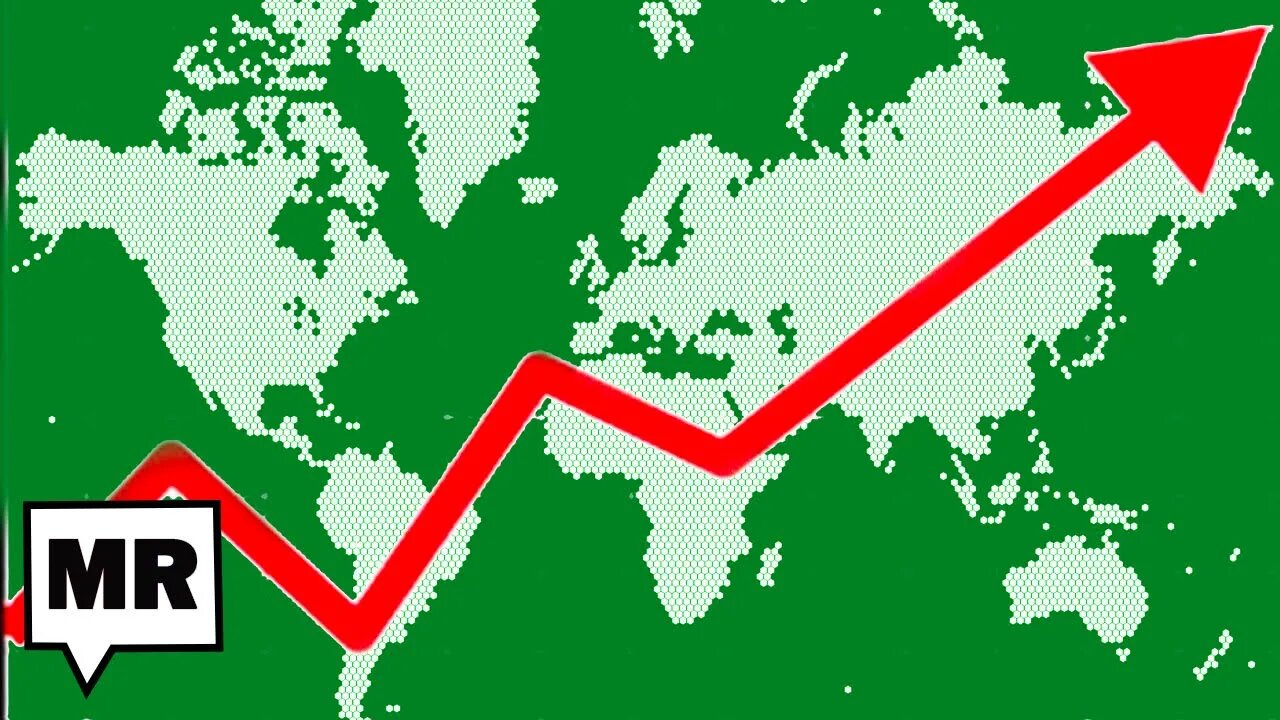Premium Only Content

Inflation: How The US Stacks Up With The Rest Of The World?
Inflation has been a big problem since the pandemic began. The US inflation rate has been high but how does it stack up with our peer countries across the globe?
Watch the Majority Report live Monday – Friday at 12 p.m. EST at http://www.youtube.com/SamSeder or listen via daily podcast at http://www.Majority.FM
#MajorityReport
SUPPORT the show by becoming a member: http://www.jointhemajorityreport.com/
Download our FREE app: http://www.majorityapp.com
Find TMR merchandise on our website: http://www.shop.majorityreportradio.com
Spread the progressive message! LIKE and SHARE this video or leave a comment to bring attention to the stories that matter to you. And SUBSCRIBE to stay connected with The Majority Report’s video content!
Support The Majority Report by subscribing to our YouTube channel: https://www.youtube.com/channel/UC-3jIAlnQmbbVMV6gR7K8aQ
Follow us on Social Media:
Twitch: https://www.twitch.tv/themajorityreport
Facebook: http://facebook.com/MajorityReport
Twitter: http://twitter.com/MajorityFM
Instagram: https://www.instagram.com/majorityreport.fm/
Image Credit, GDJ
https://openclipart.org/detail/250626/hexagonal-world-map
https://creativecommons.org/publicdomain/
Image has been cropped and color has been altered.
Where are we in terms of inflation relative to the rest of the world? So we were ahead of peer countries. And there are a lot of different countries that have a lot of different inflation and monetary systems and economies. But for a lot of our peer nations in Europe which I think are a good benchmark, you know in general European countries have had much weaker inflation because they've had weaker economies. And that's important to realize that not all inflation is bad. That a small amount is a sign that the economy is growing and that people are getting jobs and people are getting wage increases. You know the austerity that came after the great financial crisis and the great recession of the 2010s meant that Europe was already behind and slower but for bad reasons. Now we've had a bigger pickup earlier than Europe. Europe has since caught up to us generally. That's a little bit more related to energy prices and specifically Russia's invasion of Ukraine. So as your point earlier a lot of inflation right now is in food prices and energy prices notably. The price of gas. I mean there's been driving recently. You've noticed the price of gas has skyrocketed. And that's inflation in the sense that prices have gone up. But it's directly caused or in large part caused by Russia's invasion of Ukraine. And it's not derived from unemployment being too low. Or the economy being too healthy or is it too hot in the way a car engine might be too hot. And that distinction though obviously as you said doesn't matter a lot for households that are trying to deal with these costs. Matters quite a bit for how the federal reserve and policymakers react. Because if they want to slam on the brakes and it's not because the engine's too hot but because of this one specific problem it's going to throw a lot of people on unemployment. It's going to slow the economy. It's going to slow down and the investments we need. And so that's you know getting into this is really important. And you know the cross-national comparison is important because it shows that other countries are also dealing with unexpectedly high inflation for a variety of reasons.
-
 1:51
1:51
Producer Michael
20 hours agoUNBELIEVABLE DEALS ON AFFORDABLE LUXURY GIFT IDEAS FOR THE HOLIDAYS.
79K9 -
 1:16:17
1:16:17
SonnyFaz
18 days agoWe Need To Free America...
121K81 -
 1:00:40
1:00:40
Bek Lover Podcast
1 day agoKamala Will Be President? Trump In Trouble & More Strange News Podcast
39.6K6 -
 48:44
48:44
PMG
19 hours ago $9.26 earned"Hannah Faulkner and Bishop Leon Benjamin | REVIVAL IN AMERICA"
32.1K5 -
 41:55
41:55
Man in America
18 hours ago🔴 LIVE: The Cabal’s Most Powerful Weapon is COLLAPSING
130K92 -
 6:26:01
6:26:01
Jerry After Dark
18 hours agoJerry After Dark: Carnival Games
151K8 -
 3:55:04
3:55:04
ThatStarWarsGirl
13 hours agoTSWG LIVE: Big NEWS! Plus Reacting to Woke Meltdowns!
129K24 -
 8:02:46
8:02:46
FusedAegisTV
15 hours ago『AST lvl 100』Tuesday Raid & Rant | Final Fantasy XIV | Patch 7.1 Day of Reckoning!
88.4K2 -
 59:17
59:17
Matt Kohrs
15 hours agoRumble's Q3 Recap & What's Next w/ CEO Chris Pavlovski
106K30 -
 1:43:47
1:43:47
Adam Does Movies
19 hours ago $29.99 earnedGladiator II Early Reviews + Tom Cruise Stans Glen Powell + Freddy Krueger - Movie News LIVE!
94.8K3